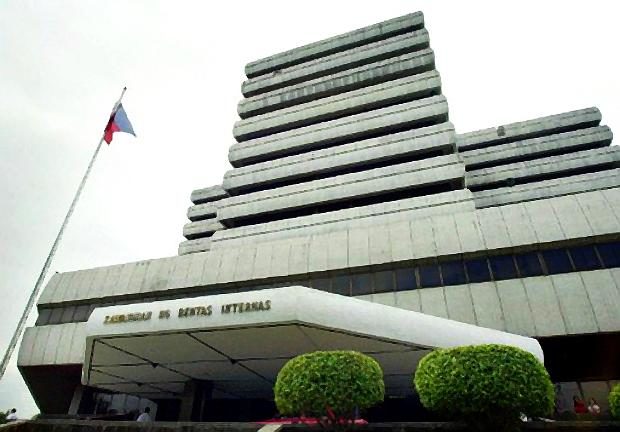BIR expects tax amnesty to boost 2019 collections

The Bureau of Internal Revenue main office in Quezon City. (File photo from Philippine Daily Inquirer)
MANILA, Philippines – The upcoming amnesty programs on delinquencies and estate taxes will help the Bureau of Internal Revenue (BIR) achieve its reduced collection target of P2.27 trillion for 2019, Internal Revenue Commissioner Caesar R. Dulay said Monday.
“We expect to have a growth rate of a double-digit figure—more than 10 percent because the increase in goal for this year is about 14.8 percent. So we should try to hit that figure as much as possible. Hopefully, we should go above P2 trillion this 2019,” Dulay told reporters.
The BIR collected P1.962 trillion in taxes last year, 4-percent below target.
Its 2019 collection goal was reduced from P2.33 trillion previously as President Duterte vetoed the provision on general amnesty from Republic Act (RA) No. 11213 or the Tax Amnesty Act of 2019, which would have raised P6.82 billion from unpaid internal revenue taxes, except customs and import duties, since 2017 and prior years.
Dulay was nonetheless hopeful that the amnesty on delinquencies and estate tax amnesty will allow the BIR to collect more this year.
Article continues after this advertisementThe Department of Finance (DOF) had estimated additional revenues from estate tax amnesty to reach P6.28 billion, while the amnesty on delinquencies would generate a bigger P21.26 billion.
Article continues after this advertisementThe Duterte administration’s comprehensive tax reform program is expected to add an average of P214.5 billion in revenues yearly over the medium term and bring the total revenue take above the P4-trillion mark by 2022.
Under the fiscal targets approved by Cabinet-level, interagency Development Budget Coordination Committee (DBCC) last March 13, the government wanted to collect P3.15 trillion in tax and non-tax revenues this year, up by a tenth from P2.85 trillion last year.
For 2019, the DBCC had said that the Tax Reform for Acceleration and Inclusion (TRAIN) Act and package 1B sans the e-receipts program scheduled to be piloted next year will generate P162.2 billion.
The revenue goal will increase to P3.573 trillion next year, P3.985 trillion in 2021, and hit P4.438 trillion in 2022.
In 2018, total revenues grew 15.2 percent and exceeded the target by 0.1 percent “due to higher tax collections following the TRAIN Law and non-tax revenues,” the Department of Budget and Management (DBM) said.
As such, the share of revenues to gross domestic product hit 16.4 percent last year and was seen attaining the same level this year. The government plans to further increase its revenue effort to 17.2 percent of GDP by 2022.
“The government aims to sustain this strong momentum of higher revenue collections and spending performance. Over the medium-term, the comprehensive tax reform program is expected to generate an average of P214.5 billion in additional revenues per year from the implementation of the TRAIN Law, the recently passed Estate Tax Amnesty Act, and administrative improvements,” the DBM said.
Meanwhile, disbursements had been programmed to amount P3.774 trillion this year, P4.21 trillion next year, P4.697 trillion in 2021, and P5.211 trillion in 2022 after expenditures jumped 20.7 percent to P3.408 trillion last year.
The DBM said actual government spending in 2018 also surpassed the program by 1.1 percent amid “heavy public spending in infrastructures and social services.”
As such, the expenditure effort was projected to rise from 19.6 percent last year and this year to 20.2 percent in 2022.
Given above-target spending last year, the budget deficit breached the ceiling equivalent to 3 percent of GDP and reached P558.3 billion.
“The deficit target will revert to 3 percent of GDP starting 2020 from 3.2 percent of GDP this 2019,” equivalent to a nominal amount of P624.4 billion, the DBM said.
Meanwhile, the DBM said “the medium-term financing program will continuously favor domestic sources with a 75-25 split between domestic and external borrowings, to mitigate foreign exchange risks while contributing to the development of the domestic capital market,” such that “national government debt is projected to maintain its downward course to 38.8 percent of GDP by 2022, anchored on the government’s sustainable fiscal strategy and faster economic expansion.”
The debt-to-GDP ratio stood at 41.9 percent last year and was expected to stay at the same level this year.